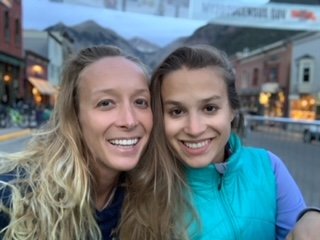A Conversation With Olivia
When did you embark on your journey into Partnership Education? (Said another way, when did you start on your path as a self-directed learner?)
I was in public school through the end of third grade. My sister and I [had] different reasons for wanting to get out of school. My sister was bored in school. For me, I found the format of school was not conducive to my learning style. I didn’t fall into the classic “book learning” style of [learning]. My parents started to explore options, and my mom was concerned that it would be demanding on her. We joined a community to get support that we were looking for and my mom realized that she didn’t need to be the “teacher” that she thought she would need to be.
What were the main benefits of being a self-directed learner?
There’s a lot more personalization that can happen, which I think is awesome for education. It also facilitated a lot more flexibility. There’s something about being a self-directed learner that helps you think outside of the box about what you want out of your life. I also loved the ability to interact with such different types of people and to collaborate with them. I worked with people who were younger and older and from different backgrounds and learned to be comfortable in different social settings.
How did Mike and/or Lucy support you during your high school years?
I would say that they were both emotionally available. I was a lot more shy at the time and they both had a willingness and openness to listen and offer advice. With Mike, we wrote resumes, which was such a great thing. It was an important skill.
What advice would you give a family who’s considering Partnership Education, but unsure of whether to take the plunge?
Gosh, there’s so much. There is no one way that you have to do it. My sister, Madeleine, and I are such different people and we benefited from and needed different things. There isn’t a right or wrong way to homeschool and we could make it our own. I also think that just because you are homeschooling doesn’t mean that you have to be alone. You can have a greater level of awareness and autonomy, and young people know more about their education, but that doesn’t mean that it has to be done alone just because it’s self-directed. There are still a lot of ways to make whatever future you want. It puts more opportunities on the table for you instead of taking opportunities away.
How does being part of a community like CA help families who are transitioning from traditional public or private schools?
I think it’s huge. It is comforting to have people around you to brainstorm and gain ideas and support. It’s nice to have community, and that was super important to me. COVID has shown me how important [community] really is. If you have people going through similar educational experiences [as you are] that can be important, empowering, and enriching. Just because you are doing something different, doesn’t mean you are alone.
What has your path been since graduating?
I “graduated” [high school] early, and [took a] gap year. I spent that time figuring out what I wanted to do, taking some additional college classes and traveling. I then went to Fort Lewis College in Durango, CO, and explored some different majors before settling on Spanish. I found that a lot of my professors [felt that] I had a better work ethic and “buy in” with regards to my education [than my traditionally schooled peers]. Being in a smaller environment and being able to really interact with my professors was really important to me. I also got to do independent studies in creative writing in Spanish, and my senior seminar was an independent study of Camino de Santiago in Spain, which I also trekked part of. I did very well, graduating Summa Cum laude.
After graduating I started working at a ski resort in Telluride, CO. I was introduced to the CEO and I ended up getting a job managing a ski locker for them. After a year they offered me a position in corporate events where I worked until COVID hit. My department was furloughed and I was offered a few different jobs but ultimately I decided to take the layoff and start looking for a different type of job. As a homeschooler, I started trying to bring awareness to what my strengths were and to sell myself on those strengths. I did a lot of job interviewing and I got a variety of offers. I took a really fun job and now I work within a family business that is remote and I have [more] autonomy over my life again, which I really like.
What skills did you develop as a SDL that have served you well during your transition to college/adult life?
I definitely think drive and determination. There’s an onus that you feel when you are homeschooling [over your education]. It’s good to feel that responsibility and to feel like you are an active participant in your day to day life and where you are going.
I was exposed to different ages of people. Learning how to talk to and interact with adults at a young age was very useful.
It’s nice to have fewer limiting measures about whether you are “successful” or “intelligent.” Homeschooling takes into account more aspects of what makes people successful or intelligent and what makes people tick. It helps you have a better understanding of all the ways that people can be intelligent. It can lead to humility, but also confidence.
If you could have known that there was no need to stress about this one thing during your teens years, what would it have been, and why?
Getting into college, if that’s the path you want to take. It would have been nice to know that everything was fine and all of that was going to figure itself out. Also, [not worrying about] socially fitting with people. Sometimes homeschoolers come into college with a greater level of maturity and we know how to get along with a variety of people of all kinds and are better able to interact with others.

